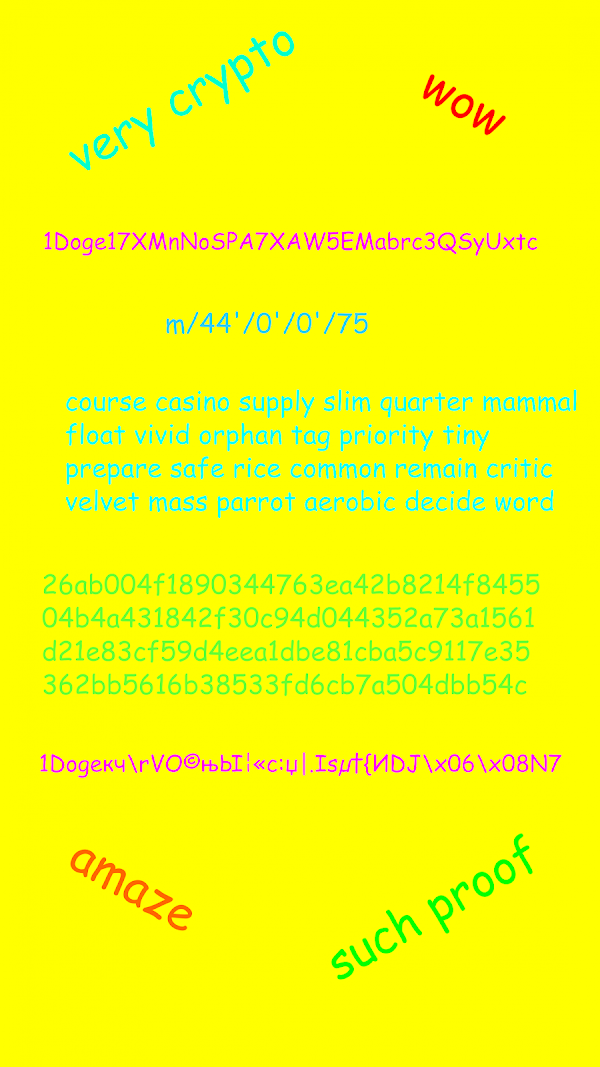
1 Doge = 1 Doge, 2019, Ethereum ERC-721 Token
“1 Doge = 1 Doge” takes the form of an image of a Bitcoin address, describing a Dogecoin meme, registered as an Ethereum NFT. That meme is 1 “Doge = 1 Doge”, and the naive typography and colour palette of the image comes from “Doge” memes such as those used to promote the Dogecoin cryptocurrency. This assertion may resemble the law of identity, as seen in Plato’s Theaetetus (and the writing of Ayn Rand…) but here it is “proven” ironically rather than taken as an axiom, reaching inside a statement of economic fungibility that has become an expression of faith in the lasting social value of cryptocurrency separate from its volatile dollar value.
NFTs are secured using public-key cryptography. Public-key cryptography uses a large, unguessably random, number as a “seed” to generate the “keys” used to encrypt, decrypt, and “sign” messages such as blockchain transactions. Public key signatures can be used as “proofs” that a secret is known to the signer without them having to reveal it until a later date. 1 Doge = 1 Doge misuses this terminology and the technology that it describes to perform one of the key functions of art: ideological closure.
To provide a non-tautological proof that 1 Doge = 1 Doge, we create a Bitcoin address starting with “1Doge” from a cryptographic key seed value also starting with “1Doge” when read as digital text rather than a number. A cryptographer or philosopher would laugh at such a proof. And yet the improbability and accompanying effort of finding such a match with a piece of software known as a “vanity address generator” impresses the imagination as much as it tickles the funny bone. It resolves the tension of having to believe a bare assertion, turning it into precisely the kind of playfully comic rhetorical sleight-of-hand that Dogecoin memed itself into being with.